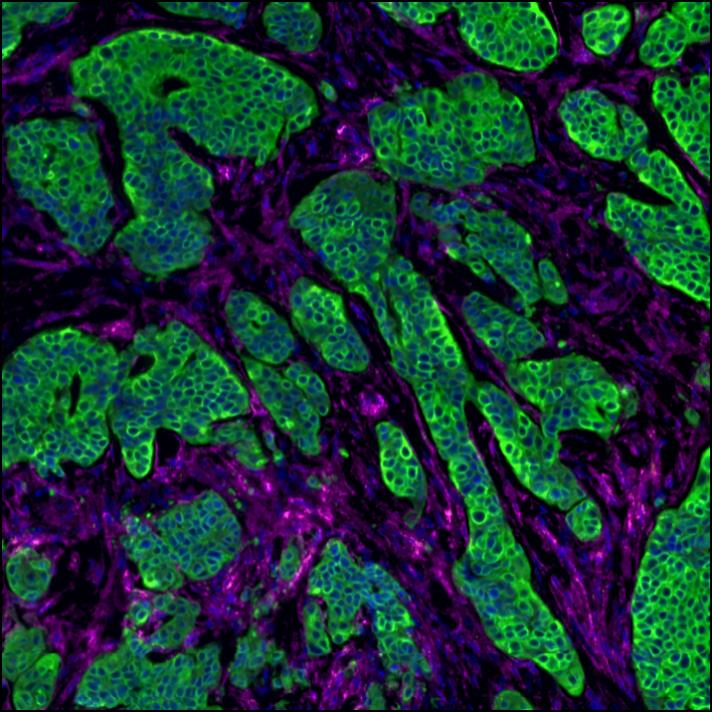Overview
The signals and pathways that drive robust T cell responses against malignant cells remain poorly understood. This central gap in knowledge is a major barrier to our ability to design better immunotherapies and predict patient outcome.
Working under the overarching immunology paradigm that the magnitude of T cell-mediated cancer immunity strictly depends on instructive signals from select activated innate immune cells, we aim to identify determinants of ‘hot’ T-cell inflamed or ‘cold’ tumours. We leverage genetically engineered syngeneic mouse models of cancer in which tumours have equivalent mutational burden but opposing immune-dependent progressive or regressive fates due to genetic manipulation of immune-evasive pathways, in both tumour or non-tumour cells.
The latter comprise alterations in host specific immune cells or on cancer cell-intrinsic signalling required for immune cell-recognition or for production of TME modulators such as PGE2. Coupled to antagonistic inflammatory profiles, these models constitute unique experimental systems to tease apart instructive pathways of tumour inflammation and immune-mediated control independently of the T cell-antigenic determinants of cancer cells.





